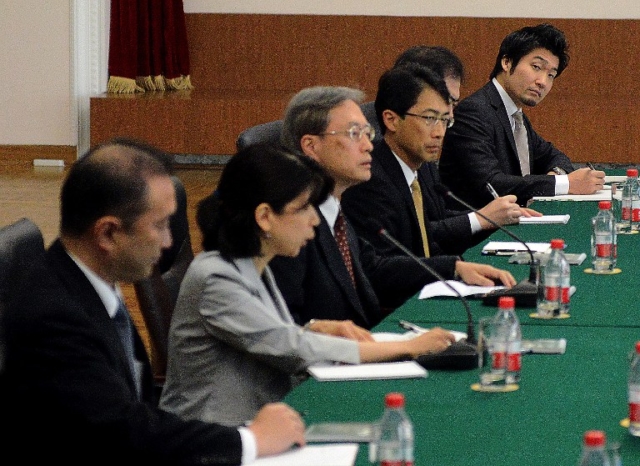Japanese Prime Minister Shinzo Abe said on Thursday, July 3rd that Japan would lift some of its sanctions against North Korea and make efforts towards a comprehensive solution to the decades-old issue of Japanese citizens that were abducted by the reclusive state.
The Nikkei business daily said on Thursday that North Korea had handed Japan the names of at least 10 of its nationals said to be living in the country, including some of those believed to have been abducted.
Japanese Prime Minister Shinzo Abe announced the easing of sanctions at a news conference in Tokyo.
“Under the principle of action being repaid by action, I want to lift part of the sanctions Japan has imposed. However, this is just the start,”
said Abe.
The easing of Japanese sanctions, which look likely to have minimal economic impact, could be the first step toward repairing long-chilled ties between Tokyo and Pyongyang, but it also comes at a time of persistent international concerns about North Korea’s nuclear and missile programs.
North Korea agreed in May to reopen the probe into the status of Japanese abductees. In return, Japan promised to lift travel curbs, restrictions on the amount of money that can be sent or brought to the impoverished North without notifying Japanese authorities, and allow port calls by North Korean ships for humanitarian purposes, when the investigation was launched. Pyongyang, however, has a history of reneging on deals.
It admitted in 2002 to kidnapping 13 Japanese citizens, and five abductees and their families subsequently returned to Japan.
North Korea said the remaining eight were dead and that the issue was closed, but Japan pressed for more information about their fate and others that Tokyo believes were also kidnapped.
In 2008, Pyongyang promised to re-open the probe of Japanese abduction victims, but it never followed through. It also reneged on promises made in multilateral talks aimed at ending its nuclear weapons program and declared the negotiations had ended.
Japanese diplomats met their North Korean counterparts in Beijing on Tuesday, July 1st to assess Pyongyang’s latest plan and Foreign Minister Fumio Kishida said a day later that a decision on whether to lift some sanctions would be made on Thursday, July 3rd.
Progress on the emotive issue of the abductees, who were kidnapped in the 1970s and 1980s, would be a big political plus for Japanese Prime Minister Shinzo Abe, who has made resolving the issue a key goal of his career.
The Japanese sanctions that could be lifted are separate from those imposed by Japan and other U.N. members under U.N. sanctions that followed Pyongyang’s first nuclear test in 2006.
The North is banned from conducting atomic and missile tests, and U.N. member states are barred from weapons trade with Pyongyang and from financial transactions that facilitate them.
 CGTN America
CGTN America
